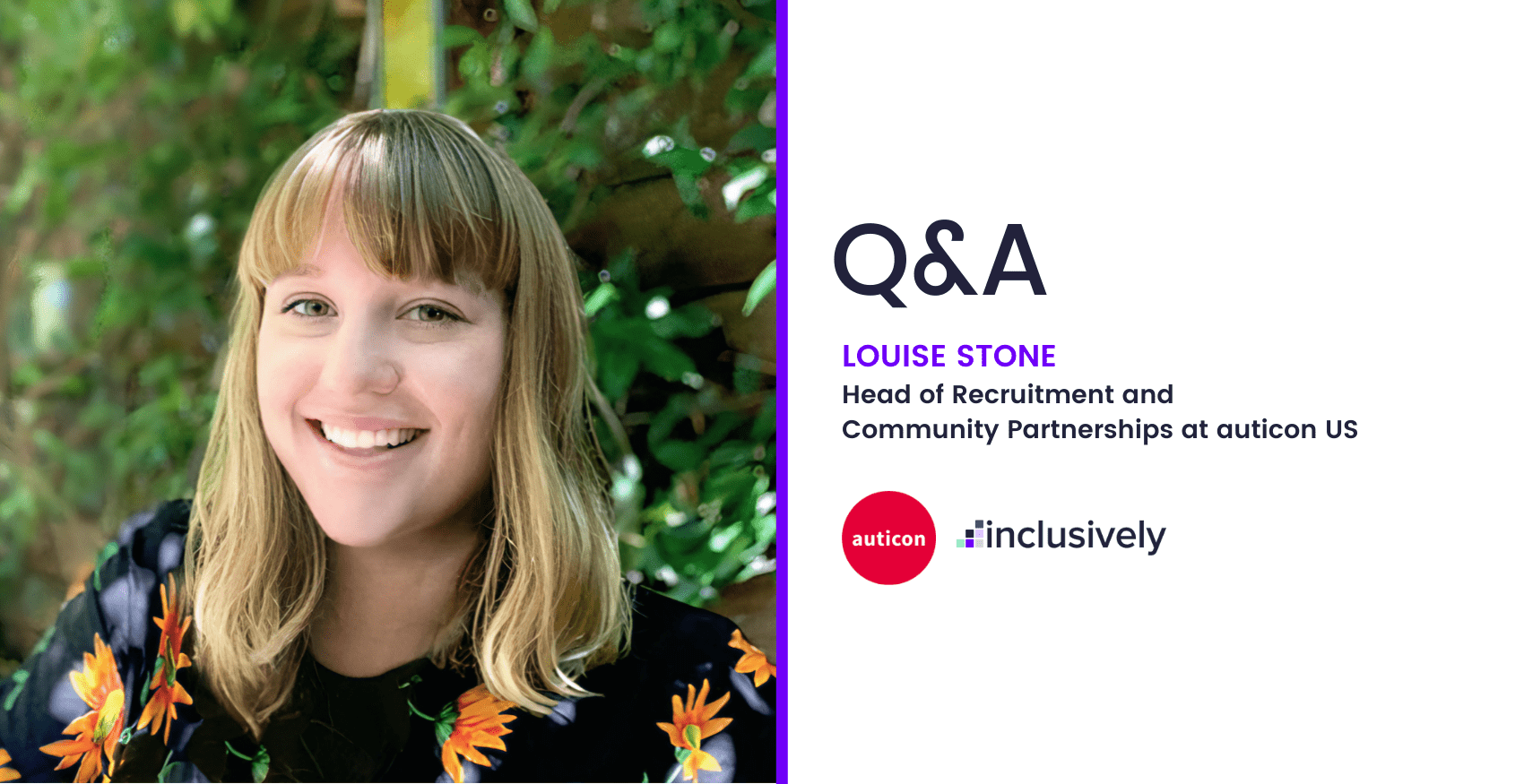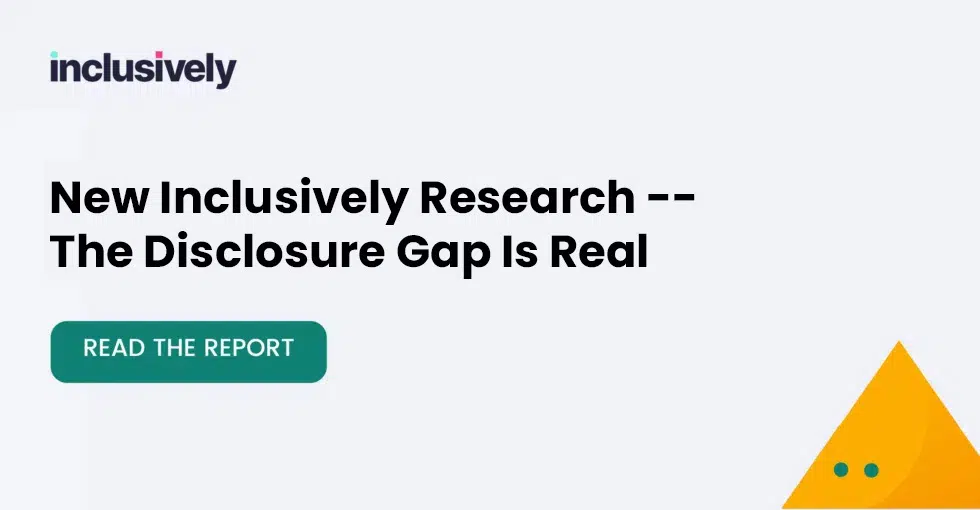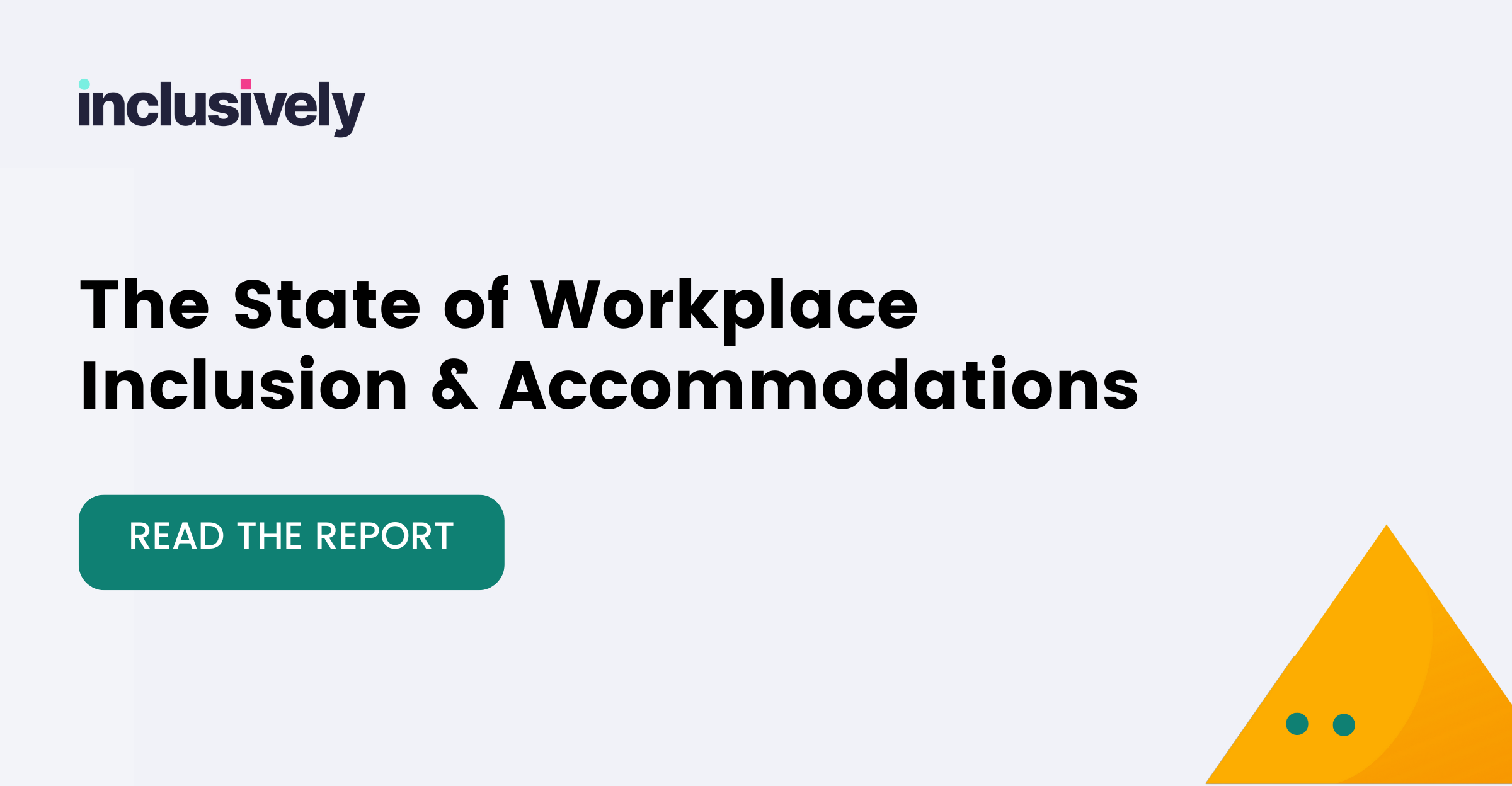In celebration of Autistic Pride Day on June 18th, we had the pleasure of interviewing Louise Stone, Head of Recruitment and Community Partnerships at auticon. One of Inclusively’s newest Premier Employers, auticon provides a neurodiverse and agile workforce to improve client’s technology projects and is hiring for multiple positions on our platform.
Louise Stone is an autistic self-advocate and the Head of Recruitment and Community Partnerships at auticon US. She joined auticon in January of 2020 after a tumultuous few years of contract and part-time jobs after graduating college, a typical path of underemployment for many autistic adults. At auticon, she has found a meaningful career where she can utilize her full skills while helping other autistic colleagues start their careers. Louise is also Vice President of Autistic Women’s Alliance, an autistic run 501c3 non-profit focused on helping autistic women thrive in their current or new careers.
Thank you for sharing your insight with us, Louise! Can you share more about yourself and your role at auticon?
Sure! I started with auticon in January of 2020 as an Executive Assistant and my role then was very varied. I had a hand in sales, recruiting, our advisory services, and more. Through that role, I found that recruiting was what I really enjoyed, especially because I was able to connect with our autistic candidates on a deeper level being autistic myself. So, in March of this year, I took over as Head of Recruitment and Community Partnerships. Currently, I oversee the recruitment process from start to finish and also manage our Community Partners, who are advocacy groups, regional centers, or similar community groups who often bring us candidates and spread the word about us.
What are some of your favorite interview questions that candidates should ask?
At auticon we don’t have a traditional interview process. We have a series of informal chats and online assessments that evaluate technical skill and preferred ways of cognitive processing. We want our process to be low-stress and casual where we are getting to know the candidate and the candidate is getting to know us, so my favorite questions are more personal questions. I like when candidates ask me my favorite part of working at auticon, how auticon is different than a typical workplace environment, or specifics about how auticon would be able to meet their needs.
What advice can you give to autistic job seekers who are searching for a job that fits their needs?
My advice would be to take some time to actually think about what they need. Many people have never had their needs met in a workplace so they don’t really know what options are available. In most workplaces, it is on the employee to advocate for these needs so if you really know what you need and why you need it, the process will be easier. Also, of course look for inclusive employers that care about accommodating you.
Why is it so important for companies to employ neurodiverse employees at all levels of leadership?
Leadership should reflect the rest of the company as much as possible. If your company has a lot of neurodiverse employees but your leadership team has none, how will you know that you are accurately meeting the needs of your neurodiverse employees? For this same reason, tokenism doesn’t work either. If you have a single person in leadership representing a larger population, you are only getting that individuals opinion. Autistic and neurodivergent people are not a monolith, you need to have more than one neurodivergent perspective in leadership to get the full picture. At auticon US, our leadership team is 40% autistic but we also poll our whole company regularly to make sure we are getting everyone’s opinions, not just those in leadership.
How is auticon creating an environment of inclusion for neurodiverse employees?
auticon is creating an environment of inclusion for neurodiverse employees in a few ways. First, we are employing them. While this should be a basic thing that everyone has access to, we of course know it is not. Providing employment is a huge step to inclusion in this normal part of life – many of our employees have their first full time meaningful job at auticon. We are also normalizing inclusion of autistic people in more workplaces. We work with clients of varying sizes across many industries and every client gets a training on what autism is and, more importantly, what autism is not. We are all about breaking down stereotypes and showing that working with autistic people is just like working with anyone else, and it works! Our clients love the work our consultants do – they get a great quality of work, new perspectives on problems, funny and sociable coworkers, and they learn actually how to communicate better as a team by having to be a little more straightforward and direct. Because of this, they continue to bring in our consultants while also often making neurodiversity a priority within their company.
What are your top 5 helpful tips for autistic job seekers?
- Think about your autism as an asset. It doesn’t matter if you aren’t a tech genius or good at math (I’m not either!), think about how your autism is an important and great part of you and what it can bring to a job.
- When reading job descriptions, know that recruiters do not expect you to meet every requirement listed. As autistic people, we can read these very literally and disqualify ourselves because we are missing one thing listed, but hiring managers are usually looking for about an 80% match and make it known which skills are actually must haves.
- Opposite to #2, make sure you are qualified for the jobs you apply for and only apply for those. We can get really excited about job possibilities because it’s our special interest or we just read about the company and think we finally found the perfect fit, but it looks unprofessional to apply to jobs that you are not at all qualified for or if you apply to every job listed at a company.
- Prepare for any interviews and if they are virtual, have notes on the screen if it’s helpful! It’s helpful to prepare questions you want to ask, things you want to remember to say about yourself or your job history, and things you have researched about the company and/or role. You can write these down on the computer for virtual interviews, but make sure you just reference them and don’t read them word for word.
- Be confident. It’s hard to be confident in job searches, but job searching is very difficult for everyone. If you keep a positive mindset, a steady flow of applications without burning out on doing too much all at once, and make sure to try and find inclusive employers, you will find the right job. There is a right job for everyone.
Thank you so much for sharing your great insight and advice with us, Louise! We’re excited to be partnered with such a forward-thinking and inclusive organization.
If you are interested in connecting with jobs at auticon, please click here to view their open roles.


